Middlemen see red as e-passport bio-enrolment system proves efficient
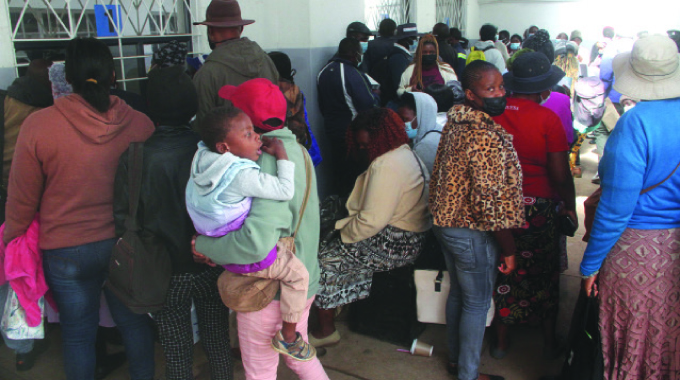
Mashudu Netsianda, Senior Reporter
THE e-passport bio-enrolment system recently launched by Government has helped in curbing corruption at the Civil Registry Department in Bulawayo where “middlemen” working in cahoots with corrupt officials, capitalised on the chaotic situation to rip off desperate citizens.
The efficient service being offered by the Civil Registry Department when applying for a passport is attracting more passport applicants, a development that has also resulted in long queues.
However, unlike in the past, the queues are moving fast and smoothly with civil registry officials expediting the application processes.
Prior to the introduction of the e-passport bio-enrolment system in Bulawayo on March 23, long winding queues characterised by chaotic scenes forced applicants to approach middlemen to facilitate in speeding up the process.
Bribes were openly being demanded upfront by officials using some informal traders operating at the Civil Registry offices as fronts.
The middlemen helped people jump the queues for fees ranging between US$20 and US$30 depending on individuals.
Chronicle news crew yesterday visited the Bulawayo Provincial Civil Registry offices and spoke to selected applicants who commended Government for introducing the new system.

People wait to collect passports at Bulawayo Passport Office
“I have been trying to apply for a new passport since last year and it has been a hassle. However, with this new system, it’s quite efficient and we are no longer forced to queue for long hours thus making it difficult for these so-called middlemen to approach us,” said Ms Nothando Dube of Nkayi.
Another one, Mr Vusumuzi Masuku said: “With this new system, it is now easier to apply for a passport without any hassles. It took me exactly seven days to acquire my passport. When I applied everything was smooth and for me, it took me just three hours to complete the entire process.”
Mr Masuku said he applied for his passport in 2019, which was taking ages to be processed until he decided to cancel the application.
“I decided to make a fresh application for e-passport and it is now out, which is a positive development,” he said.
Monica Ndlovu of Pumula North said: “As a senior citizen, I was served without joining the queue and it took me less than an hour to complete the passport application process. I am quite happy with the service that I got at the civil registry”
Ms Sihle Moyo commended the Government for introducing the e-passport bio-enrolment system, saying it will go a long way in reducing the backlog.

People wait to collect passports at Bulawayo Passport Office
“Although the queues at the civil registry are long, they are moving fast, all that is needed is patience. I came here at 8AM anticipating that by this time (midday) I would still be in the queue, but here I am now going home,” she said.
“I would like to commend officials at the civil registry for their efficiency and willingness to assist applicants throughout the entire process. Unlike in the past where you would be forced to bribe an official to expedite the process, it’s now a different story.”
Chronicle news crew observed some touts who used to capitalise on the chaotic situation to swindle applicants, milling outside the gate to the passport office as they desperately made efforts to lure clients.
One of the middlemen operating outside the Bulawayo Provincial civil registry who declined to be named said: “Since the introduction of this new system, business is now very low and sometimes you can go for a week or so without getting a client. However, we still get some people who aren’t interested in joining the queue.”
Registrar-General, Mr Henry Machiri said since they introduced the new system, people are no longer spending a lot of time in the queue.
“Now that we have the e-passport bio-enrolment system, there is no need for a middleman. However, as the Civil Registry department, we will continue to thrive to make sure that we continue to maintain those standards,” he said.
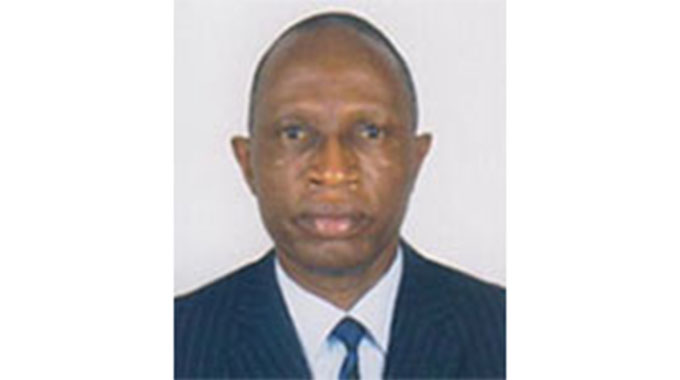
Mr Henry Machiri
“People no longer have to wait in the queue for too long to apply for a passport. It is that hassle to get the documents which resulted in corrupt tendencies with people engaging middlemen to facilitate and this is now a thing of the past.”
Mr Machiri said so far, the system is efficient with the civil registry devising new queue management systems which will further assist applicants.
“Before year-end, people will be able to apply for the e-passport from the comfort of their homes. However, that doesn’t mean when you are applying from home, the passport will be delivered to you without visiting our offices,” he said.
“This is a security document and according to international standards, we need the person’s biometrics and photo. Applying online will only shorten the time you will spend at our offices because when you now come just for biometrics, you will spend less time since we will be having all the data well in advance including supporting documents.”
Mr Machiri said the switch-over has also eliminated the large backlog of application built-ups during the lockdowns.
Upon arrival at the civil registry offices, documents are first vetted and once they have been authenticated, the applicant then proceeds to make payment after which they go for enrolment which is the final stage.
The e-passport bio-enrolment centre in Bulawayo was officially opened by Home Affairs and Cultural Heritage Minister Kazembe Kazembe at the Bulawayo Provincial Civil Registry offices as the Second Republic moves to decentralise access to travel documents in line with the devolution thrust.
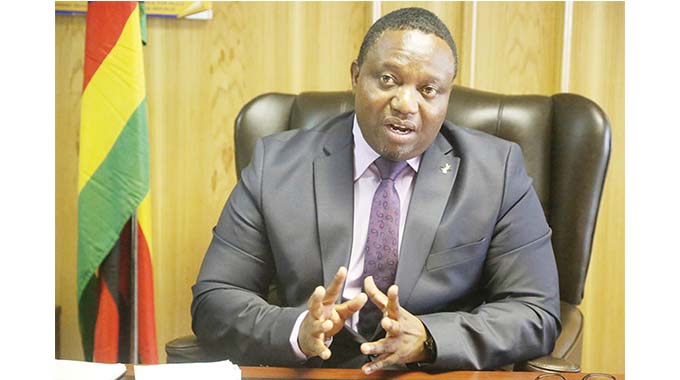
Minister Kazembe Kazembe
The e-passport scheme was launched by President Mnangagwa in December last year after the Government entered into a partnership with a Lithuanian company, Garsu Pasaulis, on a build, operate and transfer (BOT) basis to produce the new passports that meet modern international standards and allow Zimbabweans to travel without additional complications.
The partnership will also see Garsu Pasaulis refurbish provincial and district registry offices and provide material to produce national identity cards
Prior to the opening of the facility in Bulawayo, e-passports were obtained in Harare only. The implementation of the e-passport project resonates with the National Development Strategy One (NDS1) objective of modernising the economy through the use of ICTs and digital technology, as the country rallies towards the attainment of Vision 2030.
An ordinary e-passport, which costs US$120, takes seven working days to be processed while the emergency one costs US$220 and is out within 48 hours.
The enhanced security features are expected to boost authorities’ quest in fighting cross-border organised crimes and illegal migration and maintain the integrity of the country’s immigration system.
President Mnangagwa is on record saying the Government was committed to ensuring that every citizen has easy access to vital civil registration and travel documents.
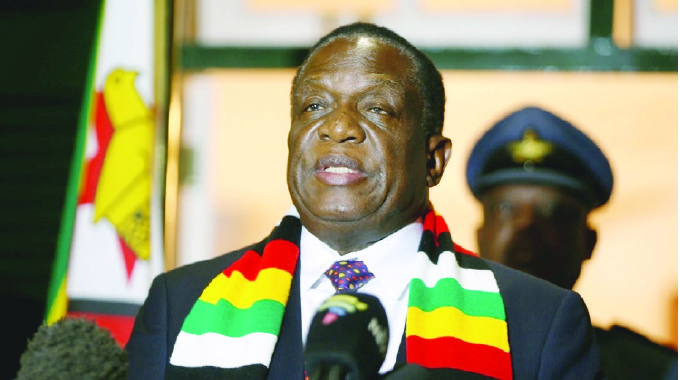
President Mnangagwa
An electronic passport or e-passport contains an electronic chip, which holds the same information that is printed on the passport’s data page.
It contains the holder’s name, date of birth, and other biographic information. An e-passport also contains a biometric identifier.
All of these features are designed to protect citizens from identity theft because it is difficult and expensive to steal the information stored on the document’s encrypted digital record.
E-passports also allow for faster passage through transit at your home border post. The new generation e-passport is fully compliant with the International Civil Aviation Organisation (ICAO) standards and has enhanced security features to abate fraudulent activities.
Zimbabwe is a member of the ICAO, which requires that member states take necessary measures to ensure the integrity, authenticity and security of travel and identity documents.
Each page of the passport chronicles a story about Zimbabwe’s rich cultural heritage and major tourists’ attractions and security thread fully embedded in the inner booklet pages. — @mashnets

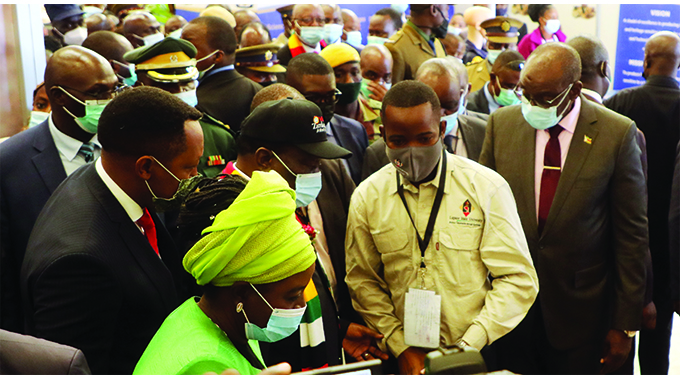









Comments